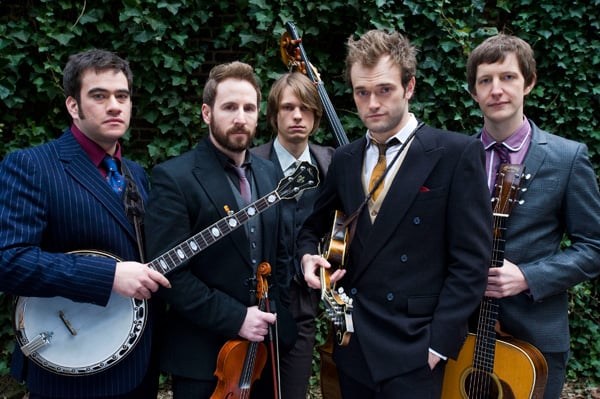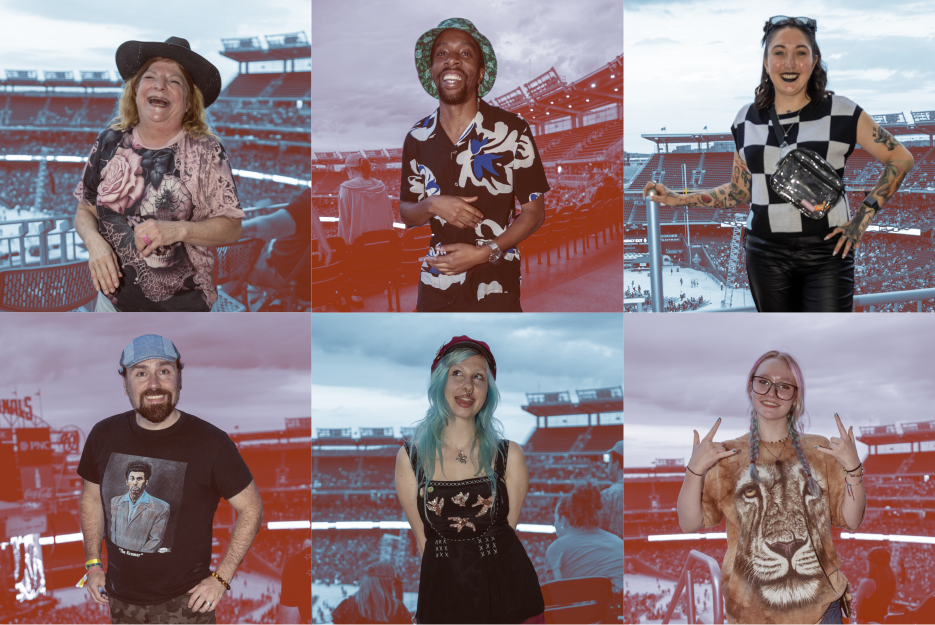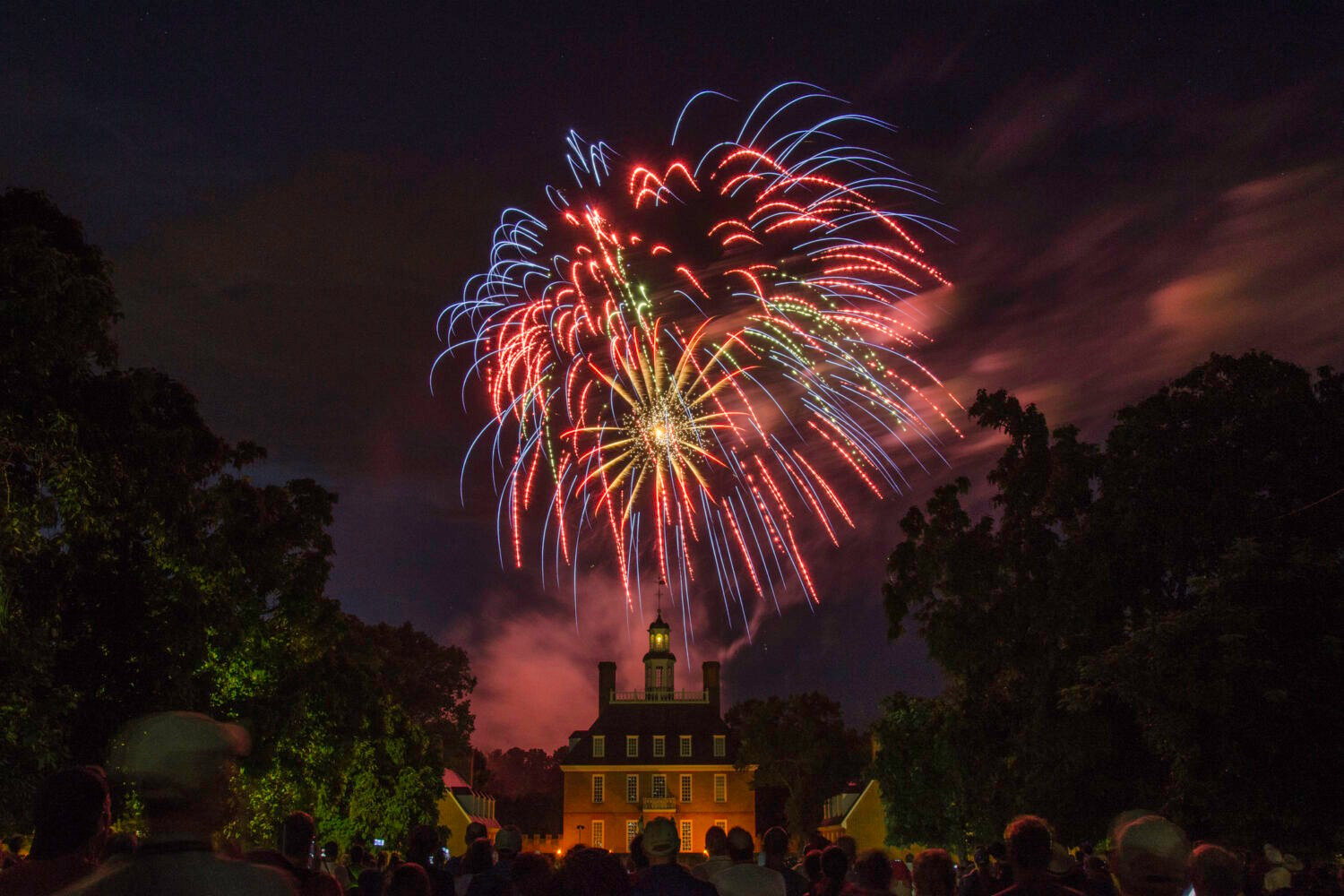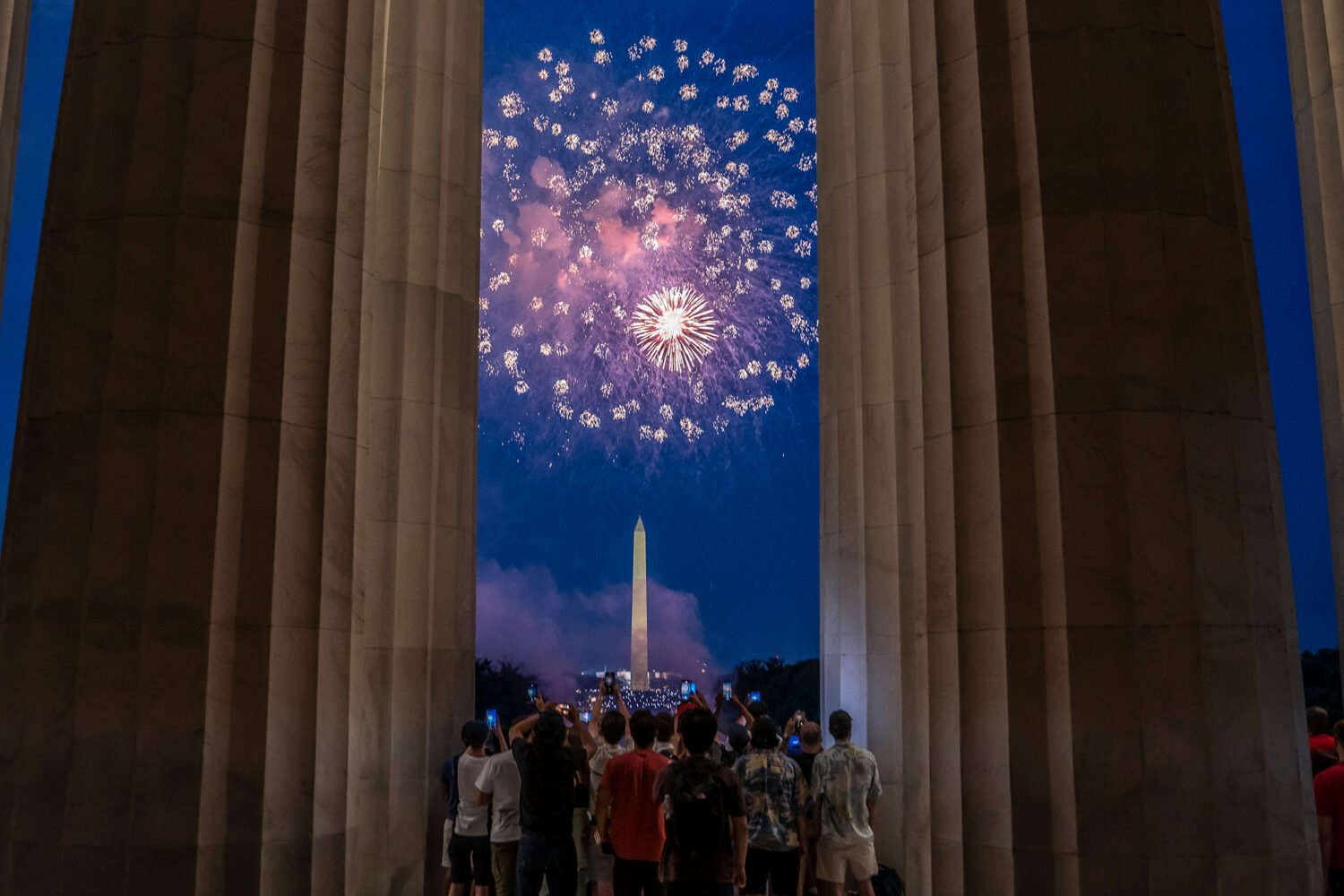Punch Brothers is a hard band to peg. If you call it bluegrass, the members will bust out a raucous cover of “Reptilia” by the Strokes. If you call it strictly indie, they’ll figure out a way to flawlessly segue from Radiohead’s “Kid A” into Gillian Welch’s fiddle tune “Wayside (Back in Time).” The only certainties are the instrumental mix of fiddle, guitar, mandolin, banjo, and base—and that you’ll be surprised by whatever you hear.
For Chris Eldridge, the band’s guitarist, Washington is home. He was born in Fairfax and spent much of his youth in Falls Church and Fredericksburg before taking off for Nashville. Eldridge returns home with his bandmates in tow to play Strathmore in Bethesda November 12. Washingtonian caught up with him before the show.
Initially, Chris Thile brought each of you in to work on his piece, The Blind Leaving the Blind. You’ve just recently released Antifogmatic, the first album you fully wrote together as a band. How did this group of musicians become Punch Brothers?
“It was interesting. Chris spearheaded our first record, Punch. He was the creative mind behind The Blind Leaving the Blind. He left room for us to come up with our own parts in a lot of places, but there was kind of this sense from day one that we wanted this to become a real democratic, actual-band band. Antifogmatic gave us the chance to have that from ground zero, from the first word. We got to develop it together. We all moved to New York in the beginning of 2009, in large part just to give us an opportunity to work on music together casually. Before that, we were all spread out all over the country. Getting together was quite a chore.”
Antifogmatic was a cocktail that farmers used to drink before going out to work in inclement weather. One of the tracks is an ode called “Rye Whiskey.” When did you guys start drinking with one another?
“We started drinking with one another as soon as we started playing music together: Thanksgiving week 2005. There was an immediate sense of celebration after we played the first notes and were getting to know one another. Hanging out at a good bar or with a really good six pack that we all loved and getting to hang out and get to know one another. That happened from the get-go. Rye whiskey, actually, is a relatively new thing for me. I started tasting rye once we got up to New York. Thile is way into cocktails. When he gets into anything, he gets obsessed.”
One of the most striking differences between your last record and this record is the prominence of rhythm guitar. Do you feel like your sound as a guitarist is evolving?
“Personally, it’s just what the songs on the new record called for. All of those things are really more functional than anything else. I’m actually kind of curious to see how things are going to change because I had a really outstanding guitar that was on loan to me for that record. It was just this Holy Grail, old 1937 Martin D-28. It had this powerful, robust sound in the low end. It carried so much weight; it was very powerful and deep but not boomy.”
Where did that guitar come from? Who loaned it to you?
“It used to belong to Charles Sawtelle, the late great guitar player from Hot Rize. He passed away about 11 years ago. When he died, he left that guitar—his prized guitar—to Nick Forster, the bass player in Hot Rize. I was hanging out with Nick after we played his radio show in Boulder, talking about old guitars. He offered that he had one that didn’t get played, and he wanted to know if I wanted to take it home with me the next day. I was in shock and didn’t even think he was serious. He was. And I got the experience of carrying Excalibur around last year. I just gave it back last month. And as much as I love it, I need to find my guitar.”
Last year, you guys played Carnegie Hall. What was that experience like?
“That was one to remember forever. On one level, it was a pressure cooker, just because all of our friends and family were there and we didn’t want to let anybody down. As soon as we got out and played the first notes, it all went away because it sounded so beautiful in there.”
You’ve been playing music since you were a kid, first with your dad’s band the Seldom Scene and then the Infamous Strindusters. Now you’re a Punch Brother. What’s it like playing in different outfits?
“They feed me in different ways. But Punch Brothers is unique in that it’s what I want to dedicate the bulk of my energy to. It’s an opportunity for growth. I get pushed in this band in ways I don’t get pushed anywhere else.”
How do you spend your down time when you’re off the road?
“I’ve been in New York, practicing and working on my own stuff and just trying to have a normal life outside of music. It tends to be a big recharger for me. So that just means having a home and a community, which are valuable and good things. I work on things outside of Punch Brothers.”
How is your life different once you’re on the road?
“We get into a real good groove musically, especially after being out. There’s some kind of threshold that gets crossed after three weeks. The music might be a little rougher every now and then because we’re just worn out. But on the other hand we’ve been playing together so much that there’s also an effortless ease that I always miss when a tour ends.”

















